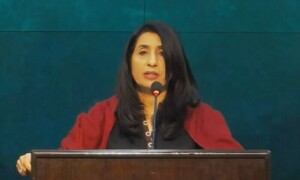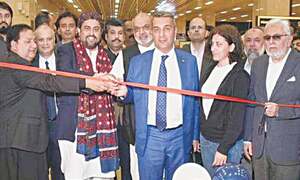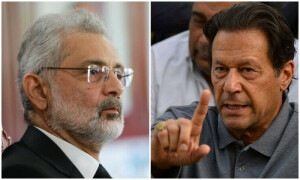Language debate

After almost 70 years of independence, the debate, whether education in Pakistan should be in Urdu or English, rages on. The 1973 Constitution written in English, made Urdu the national language, stipulating that Urdu be the official language as well as the language of curriculum and medium of instruction in education.
While Article 25 in the Constitution stipulated equality for all citizens before the law, Article 25A, enshrined in 2010, addressing the right to education specified that “the state shall provide free and compulsory education to all children of the age of five to 16 years in such manner as may be determined by the law”. This might be confusing to some but these two articles combined are about ‘equality’ for citizens’ right to education.
As this debate continues to be politicised, the present state of education continues to perpetuate class inequality stemming from a failed system of education. As a consequence, by one estimate, 23pc of children in rural areas are deprived of education thus leaving Pakistan with the highest number of out-of-school children in South Asia and second highest in the world.
Indians are far ahead of Pakistanis in learning English.
Furthermore, since the majority of children from the middle and poor class attend government schools; this puts them on the path of being the future underclass. These Urdu-medium schools are mostly underfunded, provide limited instructional time, and have an outdated curriculum. Moreover, teachers lack the motivation and adequate training or accountability.
As such, the majority of the students get to learn little from these institutions and upon graduation, it becomes a real challenge for them to go for higher education or seek out better job opportunities. This standard of education needs to be upgraded since the whole school system, by and large, is producing a class of people with limited potential to seek out better socio-economic opportunities in order to improve their lives. Since as per Article 25A, “the manner as may be determined by the law” is yet to be legislated, without it, mediocrity continues to be validated as time goes by.
Simultaneously, Pakistani leadership both in the public and private sectors prefer to be fluent in English and send their children to English-medium schools while imposing Urdu on lower socio-economic classes through government-run Urdu medium schools.
This divide takes place geographically as well. In two of the largest cities Karachi and Lahore, the dividing line is Sharea Faisal in Karachi and Shahrah-i-Quaid-i-Azam (Mall Road) in Lahore with the majority of either class residing on either side. Reality is that English proficiency creates better opportunities for higher education and better job prospects. We must understand that a nation’s sense of identity does not stem from a language spoken by a few; it comes from peoples’ well-being, education, and access to equal opportunities and prosperity. The United States does not have an official language. Though English is the dominant language here, it does not have the status of an official language.
It is important to recognise that almost all the gadgets and inventions are for those who understand English. As the world is getting more flat, technology is creating incredible opportunities and abundance of possibilities to influence the world. It has enormous potential to empower people regardless of their class, religion or geographic location. In this hyper-connected world, literacy can empower people to democratise, create, innovate and educate. This explosive growth in technology could impact mindsets, opening new horizons.
Sir Syed Ahmed Khan had encouraged Muslims in the 19th century to learn English to get better jobs and his advice holds as true today. Indians are far ahead of Pakistanis in learning English which has opened the doors for them to pursue better jobs and educational opportunities worldwide. In reality, English is going to remain the principal language of internet and technology for many years to come. Therefore, adapting to English proficiency would help the nation become more competitive.
There is overwhelming evidence that early childhood is the most critical period when a child’s brain is most adaptable and as such, early education helps develop a strong foundation. A solid early education produces better life outcomes such as less poverty, better opportunities and a better standard of living.
A well-thought-out and comprehensive strategy needs to be devised to teach English proficiency and computer skills from a very early age. Pakistani leadership must realise that to achieve real excellence, the process would require that the means to receive English language training be available equally to all socio-economic classes. A dualistic approach towards language will continue to perpetuate class differences and inhibit the optimum use of talent in the country. Excellence can only be a self-perpetuating process if access to the means of excellence is to be inclusive and not exclusive.
The writer teaches World Literature at the Centre of Global Studies in Norwalk, USA.
Published in Dawn, May 14th, 2015
On a mobile phone? Get the Dawn Mobile App: Apple Store | Google Play












































